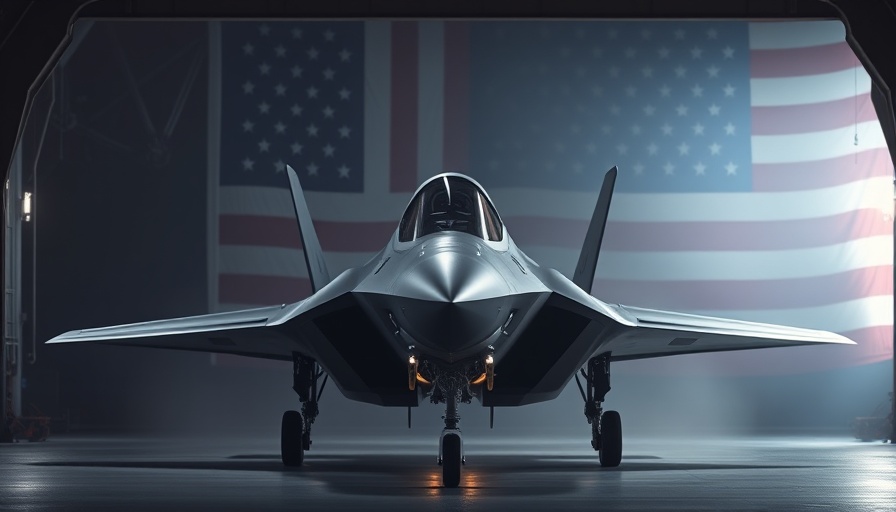
A New Era of Fighter Jets: The Air Force's Big Investment
The U.S. government has recently announced a critical investment of $20 billion aimed at jumpstarting the Air Force’s ambitious new fighter jet program. While Boeing prepares to spearhead this initiative, the nation is also facing challenges with its ongoing F-35 deployment. This significant funding underscores the importance of advanced military technology, particularly in the context of rising geopolitical tensions, especially concerning China.
What Makes This Fighter Jet Different?
Unlike the existing fleet, the new jet promises enhanced stealth and penetration capabilities that the Pentagon insists are essential for maintaining air superiority. As global threats evolve, especially with China’s military expansion, the U.S. recognizes the need for cutting-edge technology that can outpace adversaries. This investment is not merely about acquiring new hardware; it's about ensuring national security through technological advantage.
The Context of Military Spending
This immense financial commitment raises questions among business professionals regarding the effectiveness and efficiency of military spending. Critics note that while developing advanced technologies is crucial, the ongoing struggles with the F-35 program, plagued by cost overruns and delays, highlight potential pitfalls. These past experiences have led some to wonder if lessons learned will be applied to the new initiative or if they will repeat history.
What’s at Stake for the Tech Industry?
The defense industry's evolving landscape reflects broader tech industry trends, where innovation is key. For professionals interested in business and technology, understanding how military contracts drive advancements in commercial technology could provide insights into potential growth opportunities in adjacent sectors. The integration of state-of-the-art technology in future military aircraft could lead to advancements beneficial across various industries—highlighting a critical synergy between defense investments and civilian tech innovation.
Why This Matters to Business Professionals
For business professionals in sectors such as venture capital and technology, this development represents a unique intersection of government and private industry. The implications of military technology advancements can ripple throughout the economy, influencing everything from employment trends to corporate partnerships. Many tech startups are already innovating based on military needs, indicating a robust startup ecosystem linked to defense initiatives.
As decisions are made in Washington regarding future expenditures and investments, keeping an eye on these developments is essential for strategic planning and understanding future market conditions. The dialogue around military technology and its implications on commerce opens up pathways to discuss sustainability in business and the evolving digital landscape.
Amid these shifting tides, professionals must continue to adapt and ensure they are on the forefront of the necessary business strategies that align with national priorities. Staying informed on these trends will allow businesses to leverage government investments in a way that promotes growth and innovation.
 Add Row
Add Row  Add
Add 



Write A Comment